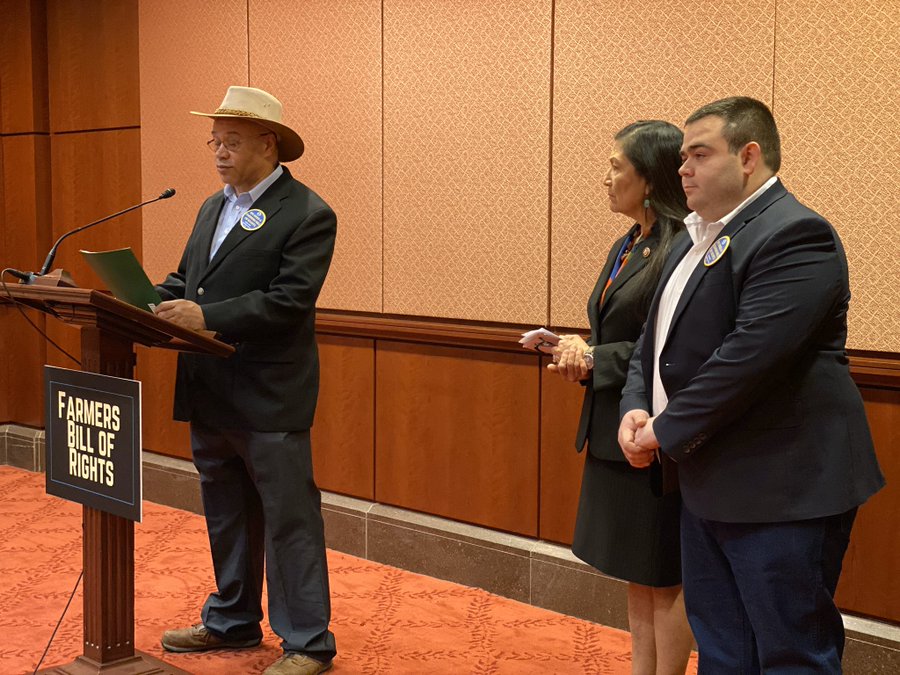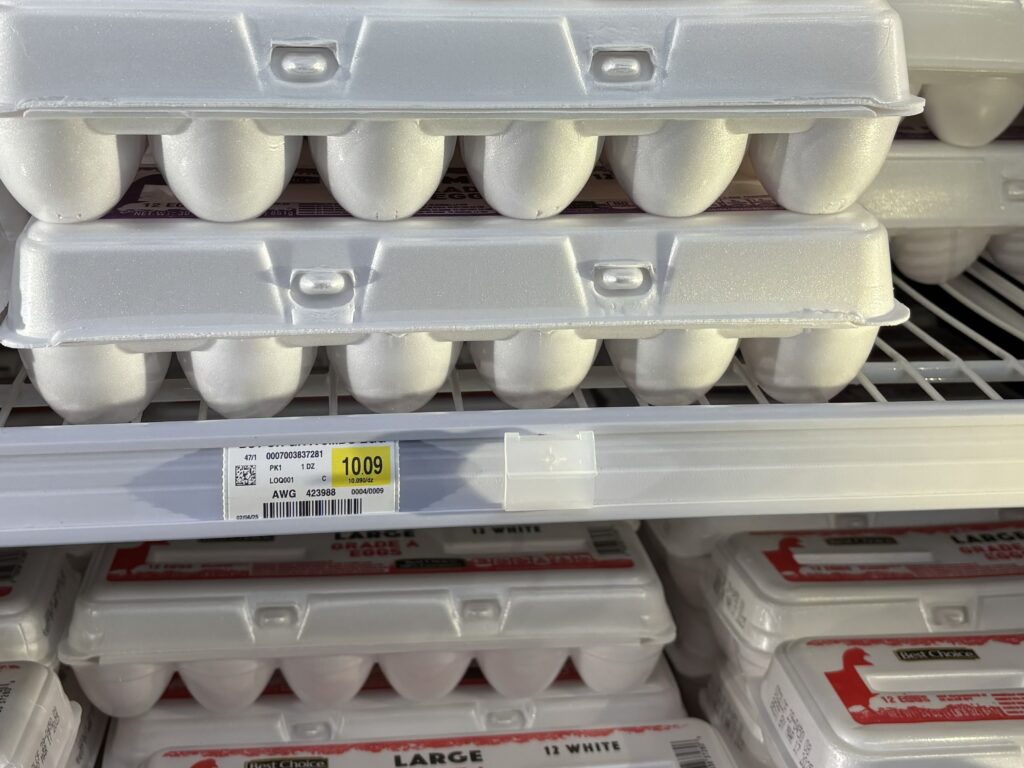Meet Farm Action Local Leader Webster (Web) Davis. Web has been a longtime supporter of the Farm Action team and has known our President, Joe Maxwell, even longer.
At the historic filing of our Farmers Bill of Rights in Congress last year, Web shared more about his history with Joe and the Farm Action team: “[Joe’s] dad and my dad farmed less than 30 miles from each other. They both raised hogs and sold their hogs at the same livestock center. The difference was my dad would be paid less for his hogs than Joe’s dad simply because of the color of my dad’s skin. As our fathers before us, Joe and I and the organizations we represent are continuing the American struggle to recognize everyone’s right to be treated equally.”
Web took an active role in the drafting of the Farmers Bill of Rights, motivated by his belief that “economic and social justice are intertwined.” After retiring from the Missouri Army National Guard with the goal of revitalizing his father’s hog farming business, it became clear “how food justice and what farmer is paid is [part of] a bigger problem than most people realize … As a kid you’d take your hogs down the road to sell at the livestock center, you go back home and two days later get a check. That market is basically gone, if you don’t have a contract with a big hog house or a neighbor to sell to, you’re basically stuck.”
When Web realized that “the small farmer is disappearing” he knew he had to act, not just for the sake of his family’s legacy, but for the future generations of farmers — especially Black farmers — who may not exist if current rates of monopolistic consolidation in agriculture and food supply continue. Web stepped up and formed the NAACP Agriculture Committee of the State of Missouri. He also serves as a member of several committees, most notably the State Of Missouri Sustainable Agriculture Research and Education Advisory Board, Minorities Included in Agriculture, Natural Resources, and Related Sciences (MANRRS) and The Council for Agriculture, Research, Extension, and Teaching (CARET).
Empowering youth with the skills and knowledge they need to act as stewards of the land, with a focus on bringing Black and brown youth into the fold, is something Web sees as key to the construction of the equitable food system we need: “Now children don’t have a clue about what’s going on with our food systems, a lot of them wouldn’t know what to do with a packet of seeds. How do you make a strawberry plant grow? The work begins at home and has to spread out.”
Tackling such a big problem –like restructuring our food system– takes a village, and Web knows this. “The nice thing about a community is you have like minded individuals and you learn from one another.”
Web hopes to share his knowledge of how the law and markets work with the Farm Action Local Leader community: “I’ve been able to see different things about how the legislative process works. I thought you could write a bill in March and it would pass in the legislative season. But now I see the bills enacted were filed last year.”
He continued: “It’s great to be an advocate, but you have to understand how the system works. Where is the bottleneck and the disconnect?”
From equipping farmers with the skills needed to weather the extremes of climate change to harnessing the power of university extension programs to teach surrounding communities the basics of food production and food preservation, Web has a pile of ideas he hopes to share with the Farm Action community.
He finished his conversation with us with a call to action: “Don’t just sit on the sidelines, be a Local Leader.”
Written by Anna Straus; edited by Angela Huffman; concept developed by Joe Maxwell, Angela Huffman, and Anna Straus.



